Summary Overview
Brazil Electricity Market Growth Overview
The Brazilian electricity sector is undergoing significant growth and transformation, fuelled by advancements in renewable energy, regulatory reforms, and increasing energy demands. This evolving landscape offers opportunities for procurement managers, energy producers, and investors to optimize their operations and navigate emerging market dynamics.
Market Size & Growth
The Brazilian electricity market is projected to experience steady growth through 2032. The market is estimated to reach around USD 35 billion by 2032, reflecting a compound annual growth rate (CAGR) of 4.5% from 2024 to 2032. This growth is primarily driven by the country’s expanding demand for electricity, the shift towards renewable energy, and the push for sustainability.
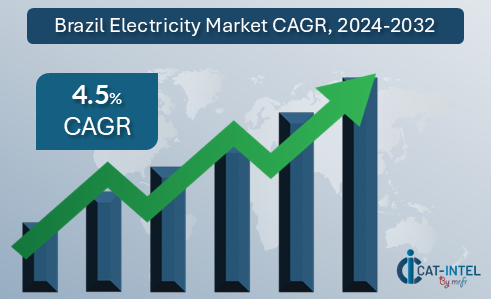
Key Growth Drivers:
-
Renewable Energy Adoption: Brazil has been expanding its renewable energy sources, particularly in wind and solar power. By 2032, renewables are expected to account for more than 50% of the energy mix, significantly reducing reliance on fossil fuels and hydropower. -
Technological Innovations: Innovations in grid management, energy storage, and smart grid technologies are helping to stabilize the supply of renewable energy and increase efficiency in energy consumption. These technologies also enhance the management of distributed energy resources. -
Regulatory Reforms: The Brazilian government’s support for green energy projects, along with policy reforms such as renewable energy auctions, are expected to drive further investments in the energy sector. -
Digital Procurement Solutions: Digital tools for procurement and supply chain management are becoming essential in forecasting energy demand, optimizing procurement costs, and improving decision-making in the energy sector.
Sector Contributions
-
Renewables: Brazil’s growing capacity in wind and solar energy is positioning the country as a leader in renewable energy in Latin America. -
Hydropower: While hydropower continues to be a major contributor to Brazil's electricity generation, its growth is being supplemented by the diversification into other renewables. -
Natural Gas: The rise of natural gas as a cleaner alternative to coal is helping meet short-term energy needs, especially during periods of low rainfall affecting hydropower generation.
Key Trends and Sustainability Outlook
-
Sustainability Efforts: With a focus on sustainable energy practices, Brazil is investing in water-efficient irrigation techniques for hydropower plants and enhancing the development of biomass and solar projects. -
Health and Environmental Impact: As global sustainability trends influence domestic energy consumption, there is a growing demand for clean energy solutions that minimize environmental impact and support global climate goals. -
Energy Efficiency: Increasing energy efficiency in both residential and industrial sectors is a primary focus, with the government and private sector investing in energy-saving technologies.
Growth Drivers:
-
Energy Demand: Brazil’s expanding population and urbanization are contributing to increased demand for electricity, especially in residential and industrial sectors. -
Government Initiatives: Brazil’s commitment to renewable energy and carbon reduction initiatives provides a favorable investment climate, which boosts market growth. -
Export Opportunities: As the global demand for clean energy grows, Brazil’s renewable energy resources offer significant export opportunities, especially in neighbouring Latin American countries.
Market Intelligence Services for the Brazil Electricity Market
The Brazil electricity market faces challenges related to pricing volatility, influenced by fluctuating weather conditions, particularly in hydropower. Market reports provide detailed cost projections, procurement strategies, and risk management insights, allowing stakeholders to optimize procurement decisions and secure energy at competitive prices. By leveraging digital tools and market intelligence, companies can enhance supply chain efficiency, mitigate risks, and capitalize on opportunities in Brazil's expanding energy market.
Procurement Intelligence for Brazil Electricity Market: Category Management and Strategic Sourcing
In the Brazilian electricity market, procurement strategies are increasingly focused on leveraging category management and strategic sourcing to improve supply chain efficiency, optimize costs, and ensure the timely availability of electricity for consumption. As Brazil continues its transition towards renewable energy sources and faces fluctuating energy prices, procurement professionals are utilizing advanced spend analysis and supply market intelligence tools to make data-driven decisions that minimize risks and maximize opportunities.

Pricing Outlook for Brazil Electricity Market: Spend Analysis
The Brazilian electricity market is facing a rapidly evolving pricing landscape, influenced by several dynamic factors including energy production costs, government policies, and the country’s shift towards renewable energy sources. This evolving environment is creating both opportunities and challenges for procurement professionals, as they navigate the complexities of fluctuating energy prices, especially in light of Brazil's expanding renewable energy capacity and ongoing infrastructure development.
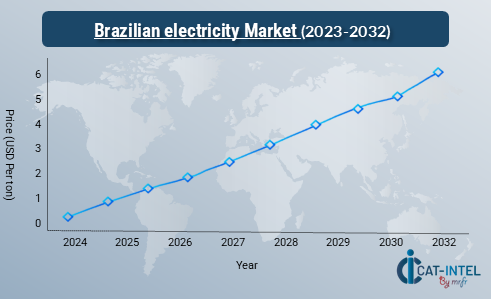
Our analysis indicates a steady rise in electricity prices in Brazil, fuelled by several key factors:
-
Rising Production Costs: The transition towards more sustainable energy sources, including solar, wind, and hydropower, is increasing initial investment costs for infrastructure development. Additionally, rising transmission costs and the need for more extensive grid integration are contributing to the overall price increase. -
Surge in Renewable Energy Investments: Brazil is heavily investing in renewable energy projects, which, while reducing long-term dependency on fossil fuels, involves significant upfront capital and technology investments that influence electricity pricing. The growing share of renewables in the energy mix may lead to higher prices in the short term as producers recover these costs. -
Export Opportunities and Regional Pricing Pressure: Brazil is becoming a key player in the Latin American energy market. The export of electricity to neighbouring countries like Argentina and Uruguay has increased, putting additional pressure on supply and pricing dynamics, which could contribute to price volatility. -
Government Policies and Regulatory Impact: Brazilian energy prices are also affected by government tariffs, regulatory policies, and subsidies, especially as the government works towards meeting sustainability goals and incentivizing renewable energy projects. Changes in these regulations can cause significant price fluctuations, affecting both domestic consumers and industrial stakeholders. -
Climate Impact: Weather patterns, particularly in Brazil’s hydropower-dominated regions, play a pivotal role in electricity pricing. Droughts or irregular rainfall can reduce hydroelectric power generation capacity, leading to increased reliance on thermal power plants, which are more expensive to operate and subsequently increase electricity prices.
Cost Breakdown for the Brazil electricity Market: Cost saving opportunities
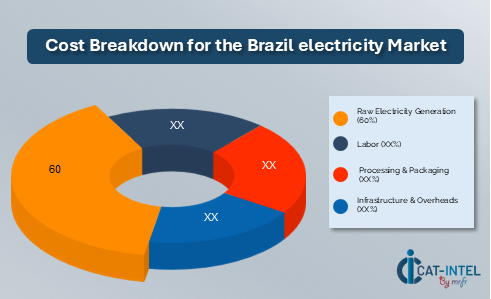
- Raw Electricity Generation (60%)
-
Description: This represents the cost associated with generating electricity, primarily from renewable sources like hydroelectricity, which accounts for 61% of Brazil's power generation. The country is a global leader in renewable energy, and the use of biofuels further complements this energy mix. -
Trends: Brazil’s electricity generation is heavily reliant on hydropower, which has historically been the most cost-effective source. However, recent price increases are linked to supply-demand imbalances, particularly from reduced rainfall, which affects hydropower generation. In 2023, electricity prices remained high, making Brazil one of the most expensive in Latin America.
- Labor (XX%)
- Processing & Packaging (XX%)
- Infrastructure & Overheads (XX%)
Cost saving opportunity: Negotiation Lever and Purchasing Negotiation Strategies
In Brazil’s electricity market, cost-saving opportunities are abundant. Long-term power purchase agreements (PPAs) for renewable energy can secure favorable rates. Energy efficiency initiatives, like investing in smart technologies, lower consumption and reduce utility costs. Participation in demand response programs, where businesses reduce consumption during peak times, offers savings. Additionally, grid modernization and energy storage solutions help optimize distribution and reduce transmission losses. Collaborating with regulators to secure stable energy tariffs further aids in managing long-term expenses. These strategies, combined with Brazil’s renewable energy boom, provide a path to both cost reduction and sustainability.
Supply and Demand Overview of Brazil's Electricity Market: Demand-Supply Dynamics and Buyer Intelligence for Effective Supplier Relationship Management (SRM)
Brazil's electricity market is influenced by renewable energy growth, increasing demand for power, and a focus on sustainability. The market sees rising demand driven by industrial growth, urbanization, and the shift to renewable energy sources.
Demand Factors:
-
Industrial Growth: As Brazil’s economy grows, demand for electricity increases, particularly from sectors like manufacturing, agriculture, and mining. -
Urbanization: A rising urban population demands more residential and commercial energy, increasing the overall demand for electricity. -
Electrification of Transportation: With the growing adoption of electric vehicles, electricity demand is expected to rise, particularly in urban areas. -
Energy Transition: There is a growing demand for clean, renewable energy solutions to meet sustainability goals, driven by both domestic policies and global environmental initiatives.
Supply Factors:
-
Hydropower Dominance: Brazil relies heavily on hydropower, which provides around 60% of its electricity. While it ensures a stable supply, it also leaves the country vulnerable to droughts. -
Renewable Energy Expansion: Wind and solar energy are rapidly expanding, with Brazil ranking among the top countries in Latin America for these renewable sources. By 2023, solar capacity had increased significantly, helping diversify the energy mix. -
Government Investments in Grid Modernization: Investments in grid infrastructure, including smart grids, are improving efficiency, enabling better energy management and enhancing supply reliability. -
Regulatory Landscape: Brazil's energy market is regulated by national agencies, and government policies often impact the pricing and availability of energy, influencing supply.
Regional Demand-Supply Outlook: Brazil Electricity Market
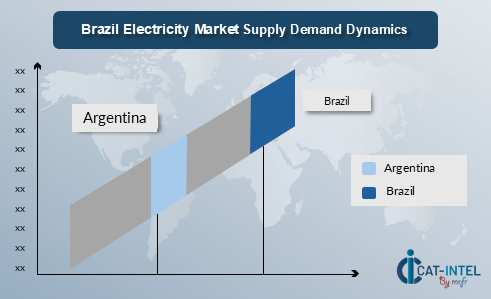
Brazil: A Key Player in the Latin American Electricity Market
Brazil is a significant player in the Latin American electricity market, with a focus on renewable energy and grid modernization.
-
Leading Producers of Renewable Energy:
- Brazil is a leader in renewable energy, particularly hydropower, which accounts for about 60% of the country’s electricity generation. The country also boasts a growing share of wind and solar power, which is crucial for diversification.
-
Hydropower Dependence: Brazil’s reliance on hydroelectric power makes it vulnerable to droughts, but recent investments in wind and solar energy are helping to balance the grid.
-
Strong Regional Export Market:
- Brazil is one of the key exporters of electricity in Latin America, particularly to neighbouring countries such as Argentina, Uruguay, and Paraguay. With increased regional cooperation, Brazil’s energy export capacity is likely to grow.
-
Innovation in Energy Processing:
- Brazil is innovating in energy processing through the development of smart grids and investments in distributed energy resources (DERs). These initiatives improve the efficiency of the grid, reduce energy losses, and support the integration of renewable sources like wind and solar.
-
Focus on Sustainability:
- The country is also focused on sustainability, with strong government incentives for clean energy projects. The Brazilian government has set ambitious goals to expand solar and wind energy in the coming years, positioning the country as a leader in renewable energy development.
-
Consumer Trends and Industrial Demand:
- The growing industrial sector in Brazil, combined with urbanization and electrification of transportation, is driving electricity demand. However, Brazil's increasing focus on energy efficiency, alongside its renewable energy expansion, is likely to help manage this demand sustainably.
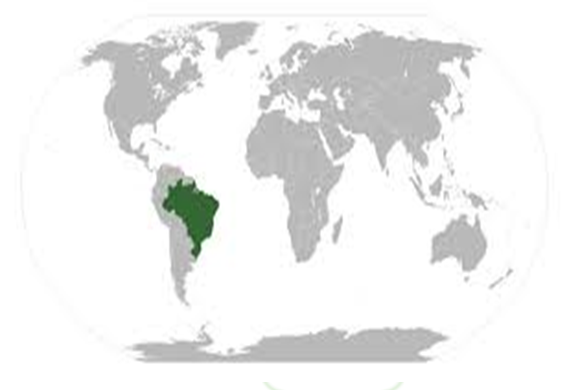
Supplier Landscape: Supplier Negotiations and Strategies in Brazil's Electricity Market
Brazil’s electricity market is supported by a diverse range of suppliers that provide critical resources for electricity generation, transmission, and distribution. Key suppliers include producers of renewable energy technology, power equipment manufacturers, and infrastructure developers. Strategic supplier relationships are crucial to ensuring the stability and growth of Brazil’s electricity market, especially as the country increases its focus on renewable energy sources.
Some of the key suppliers and stakeholders in Brazil’s electricity market include:
- Eletrobras
- Iberdrola
- Siemens Gamesa
- GE Renewable Energy
- Enel Green Power
- ABB.
- Solar flex
- Tractable Energeia
- AES Tiete.
- Schneider Electric
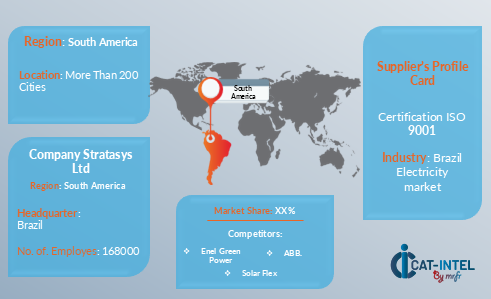
Key Development in Procurement Categories: Brazil Electricity Market
Procurement Category |
Significant Developments |
Impact |
Renewable Energy Sources |
Increased investments in wind and solar energy; Brazil aims to diversify energy mix to reduce reliance on hydropower. |
Enhanced energy security, reduction in greenhouse gas emissions, and increased supply stability. |
Energy Storage Solutions |
Growing focus on battery storage systems to complement renewable energy sources. |
Improved grid reliability and better management of intermittent renewable energy generation. |
Grid Modernization |
Implementation of smart grid technologies, including real-time monitoring and automated controls. |
Reduced energy losses, improved efficiency, and enhanced consumer energy management. |
Transmission Infrastructure |
Expansion of high-voltage transmission lines to connect remote renewable projects to urban centers. |
Increased electricity accessibility and reduced congestion in the grid. |
Energy Efficiency Equipment |
Rising demand for energy-efficient appliances and industrial machinery incentivized by government initiatives. |
Cost savings for consumers and businesses, supporting sustainable energy usage practices. |
Regulatory Changes |
Deregulation in power purchasing agreements (PPAs) and increased private sector participation in electricity supply. |
Greater competition among suppliers, leading to lower electricity costs for end users. |
Hydropower Sustainability |
Focus on improving dam efficiency and reducing environmental impact of hydroelectric plants. |
Better resource utilization and minimized ecological disturbances. |
Procurement Attribute/Metric |
Details |
Market Sizing |
Brazil's electricity market is expected to expand significantly in 2024, driven by a projected increase in renewable energy investments, particularly in wind and solar sectors. Installed capacity from renewable energy reached approximately 89% in 2023, reflecting a strong focus on green energy initiatives. |
Renewable Energy Adoption |
Hydropower continues to dominate, contributing over 60% of the total electricity generation. However, onshore wind and solar photovoltaic (PV) installations are rapidly growing, with solar capacity reaching 36 GW by 2023 and expected to exceed 55 GW by 2032. |
Top Strategies for 2024 |
Key focus areas include enhancing grid reliability, increasing investment in offshore wind projects, and advancing energy storage systems to stabilize intermittent renewable energy sources. |
Automation in Power Management |
Over 50% of power companies are integrating smart grid technologies, enabling better demand response and efficient distribution. Transmission network upgrades are also being prioritized to reduce energy losses. |
Procurement Challenges |
Challenges include volatile energy prices, regulatory complexities, and environmental concerns associated with large-scale hydropower projects. Managing distributed generation and grid integration of renewables also remains a key issue. |
Key Suppliers |
Major players include Eletrobras, CPFL Energia, Neoenergia, and Enel Brazil, with a focus on renewable energy expansion and innovative technologies for grid modernization. |
Key Regions Covered |
The Southeast region dominates electricity consumption, followed by the Northeast, which is emerging as a hub for wind and solar energy production. |
Market Drivers and Trends |
Growth is fueled by Brazil's commitment to decarbonization, increasing electricity demand, and the push for energy self-sufficiency through distributed generation and renewable energy sources. |










